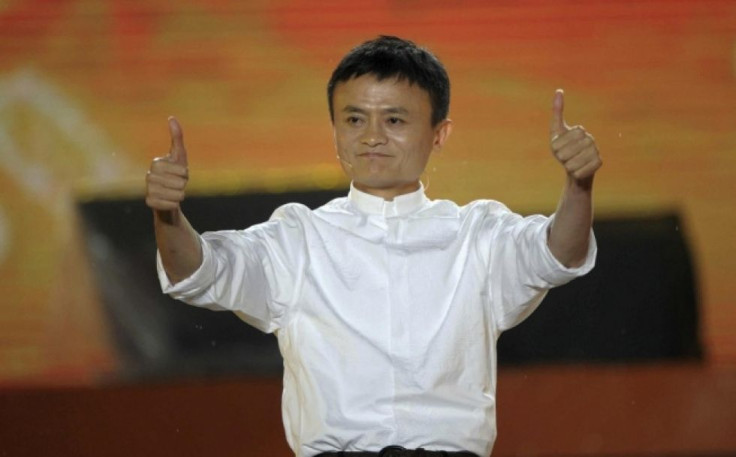Alibaba Group Holding Ltd (BABA) Stock Price Soars After Revenue Leaps 45%; Daniel Zhang To Replace Jonathan Lu As CEO

Shares of Alibaba Group Holding Ltd. (NYSE:BABA) soared 10 percent Thursday to $88.51 after the Chinese e-commerce giant posted quarterly sales that beat Wall Street forecasts, as revenue leaped 45 percent, boosted by mobile transactions. The company also announced that Daniel Zhang, chief operating officer, will replace Jonathan Lu as CEO, effective Sunday.
This is the third public earnings report from Alibaba after Jack Ma, the company's founder and executive chairman, led the e-commerce giant to a record-breaking $25 billion initial public offering in September.
For the January-March period, the company reported fiscal fourth-quarter net income of $467 million, or 18 cents per share, as revenue rose 45 percent to $2.81 billion. Wall Street had expected the company to report sales of $2.77 billion, analysts polled by Thomson Reuters said.
Meanwhile, mobile transactions accounted for 51 percent of Alibaba's overall transactions, up 27 percent from a year ago. The March quarter was expected to be slower for the company due to China's Lunar New Year holiday.
Expanding Its Footprint
Alibaba has continued to make investments in Chinese companies to expand its e-commerce footprint, but the company has yet to make a big move outside of China. Analysts say Alibaba has a better opportunity creating a footprint in emerging markets in the near term, as opposed to more established markets, like the U.S.
“I would expect Alibaba to focus first and foremost on the Chinese market, then on cross-border markets from China,” said Gil Luria, an analyst at Wedbush Securities Inc. In markets such as the U.S., Luria said, competition with Amazon.com Inc. and eBay Inc. would be intense. “It makes more sense for [Alibaba] to start with emerging markets,” Luria added.
Henry Guo, an analyst at Summit Research, agrees. “The company has a much better chance to be successful in India rather than the U.S.,” Guo said. India creates more favorable opportunities for Alibaba because India is very similar to China, as smartphone penetration is low in India, and people are starting to use mobile communications and the Internet more.
“Although there are domestic players in India already, they’re not that dominant,” Guo said.
In January, Alibaba and an affiliated financial services company invested $575 million in India’s One97 Communication, operator of Paytm, the country's largest mobile wallet service with 15,000 merchants and 25 million registered users. The deal will allow Indian consumers to shop on Alibaba sites by making payments through Paytm, while Chinese customers can use Alipay to buy from merchants selling on Paytm’s marketplace.
“They wouldn't put money in a company like that and just walk away,” said David Louton, a professor of finance at Bryant University.
Alibaba was in discussions with Indian online marketplace Snapdeal, which competes with Indian e-commerce platform Flipkart.com and Amazon.com, about a possible investment of $1 billion, Recode reported in March. However, the Chinese company scrapped plans. The deal would have been Alibaba’s first direct investment in India.
Asian Slowdown
Recent evidence suggests that Asian economies are slowing, as China's economy in the first quarter grew at its slowest pace since the global financial crisis. China’s slowing economy could hurt Alibaba because more than 80 percent of its revenues come from its home market.
“India’s economy is doing a little bit better, but not decisively so. It makes sense for Alibaba to go into some other markets, like Africa,” Louton said.
There’s a rising middle class in Africa that is largely untapped, Louton explained, and Alibaba is better positioned to serve that kind of emerging market rather than a more established consumer population, like the U.S. or Europe. “It would be easier for them to get a foothold in Africa,” Louton said. “I could also see them trying to get a foothold in Latin America, but I haven’t seen anything yet that suggests they’re actually putting any stake in the ground there.”
However, the slowdown in the Chinese economy has to do more with business and government investment, as opposed to consumer spending, Luria explained. In fact, the Chinese government is trying to shift more of the economy toward consumer spending. “As long as consumer spending and e-commerce spending grow, Alibaba should continue to grow at these rates,” Luria said.
Shares of Alibaba have dropped 23 percent so far this year, and have lost nearly 15 percent since its IPO.
© Copyright IBTimes 2024. All rights reserved.






















